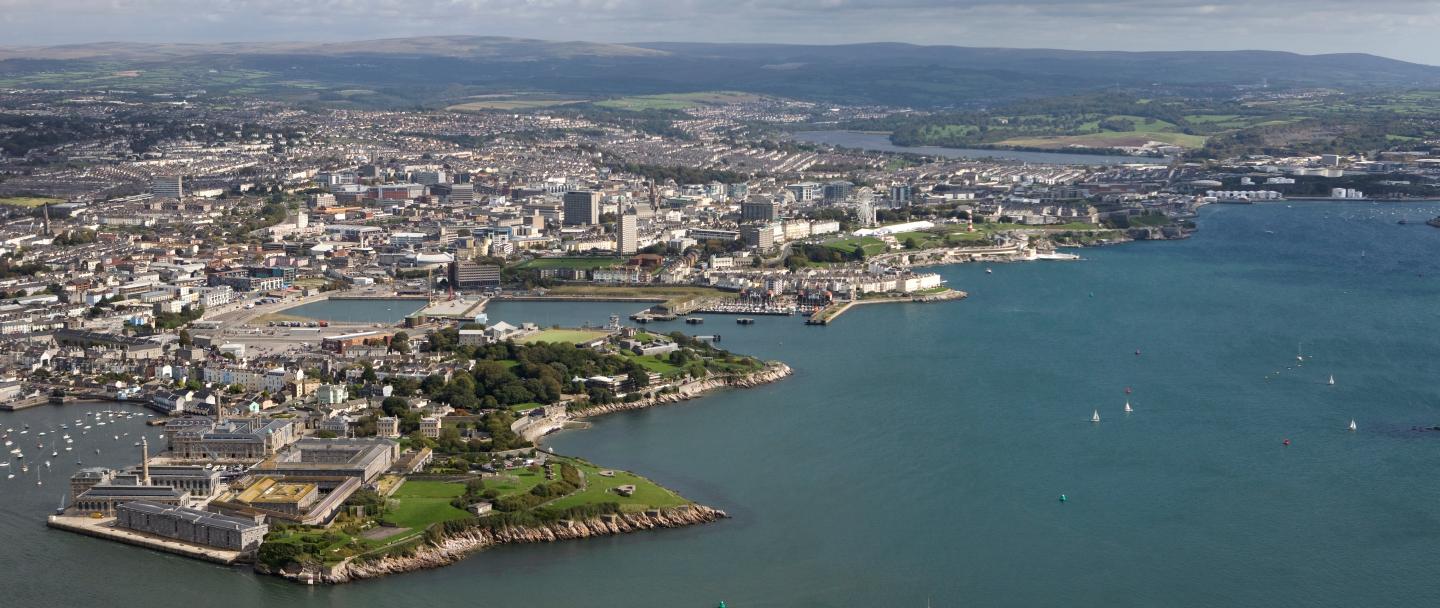Study creates a blueprint for city marine parks

Credit: University of Plymouth
Coastal cities are among the fastest growing population centres on the planet and half of the global population now lives within 100km of the coast.
But as these often fast growing urban communities expand, their reliance on the seas – and the potential damage caused to them – is increasing.
One potential solution is to create a city marine park, connecting urban areas on the coast and their people with the reciprocal benefits the marine environment can offer.
Plymouth is currently going through this process with city officials having committed to designating the seas around Plymouth as the UK’s first National Marine Park.
Now researchers from the University of Plymouth, writing in Marine Policy, have detailed how other cities – in both developed and developing countries across the world – can follow in its footsteps.
The study has been led by experts in maritime law, marine ecology, marine policy, social science and ecological economics from the University’s Marine and Coastal Policy Research Unit.
It proposes a collaborative approach that would see communities taking the lead in creating initiatives that help people harness and promote the benefits of their unique marine environment.
In particular, researchers highlight how city marine parks could contribute to the wellbeing of a community and its people in terms of enhanced health, economic prosperity and sustainability.
The study’s lead author Dr Simon Pittman, Visiting Research Fellow at the University and Director of Seascape Research CIC, said: “Whether you live in Melbourne, Mumbai, Miami or any other coastal city in the world, the ocean can be an important factor in your life. But it is vital for communities to deepen the connection and really focus on developing a mutually beneficial relationship with the ocean for greater economic, environmental, social and health benefits. We believe the city marine park concept provides the means to do that, essentially providing a gift from the city to itself in terms of securing a prosperous, healthy and sustainable future for coastal cities.”
The study – which also involved researchers linked to the Nautical Archaeology Society, Plymouth Marine Laboratory, the University of Exeter, the United Nations Environment Programme, Plymouth City Council, Schumacher College and the University of Wales – highlights the key objectives of creating city marine parks.
They address many of the aspirations set out in the United Nations Sustainable Development Goals, and include: equality of access and social inclusion; marine literacy and citizenship; business partnerships for positive social and environmental impacts; celebration of marine and maritime heritage; place identity, place-branding and civic pride; community health and wellbeing; and joined-up inclusive stewardship.
Unlike other global initiatives such as Marine Protected Areas, they would not seek to provide legal protection but instead focus on encouraging and enabling people and organisations to better understand their local seas and the positive impacts they can offer.
Professor of Marine Ecology Martin Attrill has been a long-time advocate of the marine park idea, and is playing an integral role in Plymouth’s current initiative. He added: “We live in an era where the world’s seas have been heavily impacted by human activity and remain under serious threat. But there is also increased awareness and recognition that the global population has a crucial role to play in safeguarding their future. Identifying ways for coastal cities to benefit from the seas and vice versa is a hugely positive step, and city marine parks can be a catalyst for real change in terms of the relationship between the citizens of coastal cities and their marine surroundings.”
###
Media Contact
Alan Williams
[email protected]
Original Source
https:/
Related Journal Article
http://dx.



